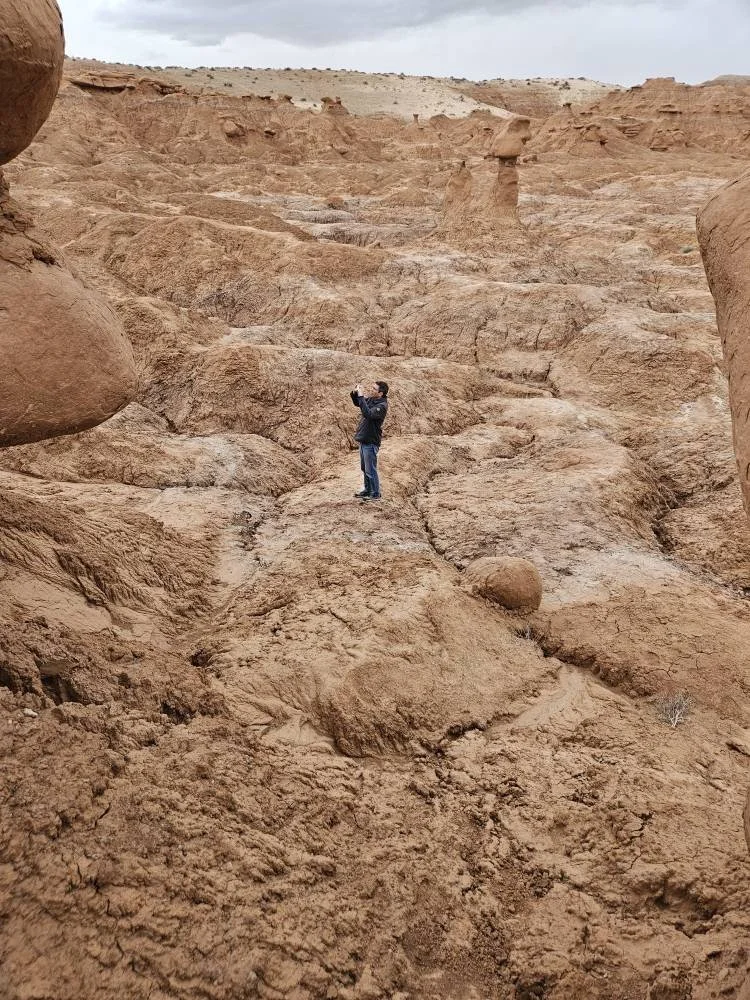Principle 3 - Practice remembering your dreams
Before you go to sleep, acknowledge that you dream every night, that tonight you want to remember a dream and you are committed to recording the dream immediately upon awakening.
Practice Remembering Your Dreams
There’s an old saying in business: “We value what we count.” In life more broadly, we might say, “We value what we record.” When it comes to DreamWork, this principle is essential.
Recording your dreams is not just about remembering content—it is an act of commitment, a way of telling your unconscious mind: This matters to me. I am listening. In a culture that has often dismissed dreams as background noise or evolutionary leftovers, choosing to record your dreams is a countercultural act of inner exploration.
But there’s a common hurdle: “I don’t remember my dreams.”
The Myth of the Dreamless Person
Let’s be clear: everyone dreams every night. The only exception is extreme neurological impairment. The science is unambiguous—REM sleep, and the dreams that accompany it, are essential to mental and emotional health. If a person is allowed to sleep, but is awakened every time their brain activity suggests they are entering REM, they become psychologically and emotionally unmoored. Within days, they begin to hallucinate. Their waking life becomes indistinguishable from dream fragments their brain is desperately trying to complete.
So it’s not that we aren’t dreaming—it’s that we’re not remembering.
Cultural Amnesia
The widespread claim “I don’t dream” is really a symptom of cultural conditioning. In Western society especially, dreams are often seen as meaningless static. We’re trained, consciously and unconsciously, to believe that dreams are unhelpful, irrational, and insignificant.
And so we forget.
Memory follows value. We remember what we consider important. This means that before we can consistently remember dreams, we must change our belief about them. The moment you begin to treat dreams as valuable—whether or not they seem profound at first—you are already laying the foundation for recall.
A Simple Ritual
If you want to remember your dreams, try this nightly practice:
Place a recording device or journal by your bed—within easy reach.
Just before falling asleep, say aloud:
“I know I dream every night. Tonight I want to remember a dream. And I commit to recording or transcribing that dream as soon as I awaken, regardless of what time that might be.”If you awaken in the middle of the night with a fragment of a dream, record it immediately. Don’t wait. Even a word or image can be a seed for fuller recall later.
In my experience, if someone follows this practice faithfully, they typically remember their first dream within seven to ten days—often sooner. The ritual itself signals to the subconscious that its voice is welcome.
The First Dreams May Feel Insignificant
Often, the first dreams people recall seem like nonsense. A jumble. Residue from the day. Irrelevant.
That’s okay.
The first dream is rarely the one that transforms you. But it is the one that opens the door. It’s like hearing a voice you didn’t know was speaking—quiet at first, unfamiliar, even odd. The key is to keep listening.
Sometimes, it helps to work with someone else—a friend, therapist, or guide—who can help interpret or reflect on a dream’s deeper meaning. But interpretation isn’t always the goal. The goal is self-awareness.
The Measure of a Dream’s Value
There are times when someone’s interpretation of a dream may seem off. But if the act of interpreting brings clarity to a fear, desire, or forgotten emotion—then the dream is doing its work.
That’s what matters.
If a dream helps you face a fear you’ve been avoiding, or name a longing you didn’t realize you carried, or recognize a voice inside of you that wants a seat at the table—then the dream has moved from night into day. It’s not just content anymore. It’s an active force in your waking life.
Dreams Remembered, Self Recovered
Dreams speak in symbols, stories, emotions, and scenes. They often bypass logic. But they don’t bypass truth. They help us explore the unspoken parts of ourselves, inviting those parts into the conversation of our lives.
Remembering your dreams isn’t about catching them all. It’s about building a bridge—a bridge between night and day, between the unconscious and conscious self, between mystery and meaning.
The bridge is built through attention and practice. Remembering begins when you decide that your dreams are worth remembering.
References
Walker, M. (2017). Why We Sleep: Unlocking the Power of Sleep and Dreams. Scribner.
Domhoff, G. W. (2003). The Scientific Study of Dreams. APA Press.
Barrett, D. (2001). The Committee of Sleep. Oneiroi Press.
Nielsen, T., & Levin, R. (2007). Nightmares: A new neurocognitive model. Sleep Medicine Reviews, 11(4), 295–310.
Schredl, M. (2004). Reliability and stability of a dream recall frequency scale. Perceptual and Motor Skills, 98(3), 1422–1426.





